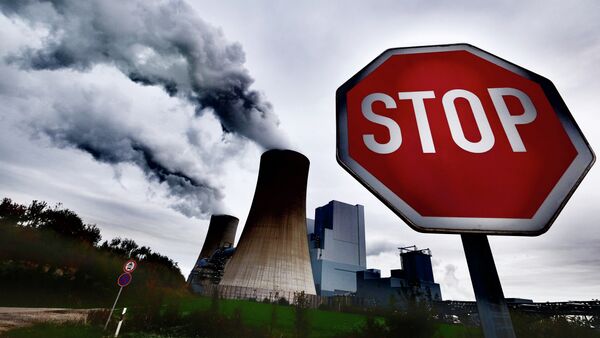The Prosper-Haniel mine in the coal town of Bottrop, located in the German industrial heartland, the Ruhr Valley, has formally closed with a symbolic ceremony. High-ranking officials, including German President Frank-Walter Steinmeier and European Commission President Jean-Claude Juncker, head of the coal corporation RAG Peter Schrimpf as well as miners took part in the event, marking the end of a 150-year-long era of this industry, which played such a vital role in the country’s and European economies.
The last lump of coal, brought out from deep below ground, was presented to the German president, who encouraged miners to look forward to the changes as a beginning of a new era, while the RAG chairman called it "the last dark day”.
READ MORE: Trump Sued by 4 US States Over Coal Mining Lease Program
The mine shut down in September, years after the decision to stop it was taken in 2007. Over this decade the number of miners in the country shrank from 30,000 to 4,500. The industry has been in decline for years, supported by $55.8 billion in subsidies over the last two decades, the German outlet Die Welt reported.
Germany was not the first European country to part with hard coal mining, as France and the UK did it in 2004 and 2015 respectively for the same economic reasons as coal mining in Europe has ceased to be commercially competitive.
READ MORE: Dig We Must: German Court Says OK for Coal Mine to Destroy Last Ancient Forest
However, despite ceasing black hard coal mining, the open-cast quarries, where cheaper lignite is mined, will continue their operations in Germany. Additionally, Germany will keep using imported coal for their power plants. The top of the coal importers’ list is occupied by Russia, which increased its sales to Germany from 16.7 to 19.4 million tonnes in 2015-2017. Russian coal has a 38 percent share of the German market, Deutsche Welle reports. In the energy industry this share is even bigger as 49 percent of the hard coal, German power plants use, was mined in Russia.
However, the country’s government is now thinking over a way to abandon this type of energy, claimed to be the most harmful to the environment.
A special commission set up by the government is now working on a corresponding plan, which is expected to appear in February2019. Along with steps for shutting down the coal industry, the plan should outline future perspectives for the regions affected by these changes and people losing their jobs. So, in Bottrop, where the historic closure took place, the unemployment rate is higher than the 5 percent German average by 1.3 percent, although new businesses have reportedly opened in the city.




